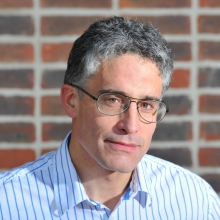Thinking. You don’t often see it in people’s diaries, but based on recent interviews with 50 senior managers, perhaps it should be, as the common theme that emerged is a daily struggle to find the time to think and plan. Staying so busy trying to keep on top of everything, these leaders reported losing sight of what they were trying to achieve and the bigger picture of why these things needed to be done. The paradox is that the more senior you are, the more you are paid to ‘think’ and the less to ‘do.’ When you start your career you are paid to ‘do’, to learn the basics and complete the tasks required. As you move up through the ranks, your value comes from the knowledge, wisdom and experience you have to make things happen. By the time you make it to the top of your field, your role is almost exclusively to think through what the business should be doing and quite frankly, you’d be dangerous if you tried to do anything. Thus, for senior managers to be struggling to find time to think and plan, means we are not getting the value from them we should. Simply putting planning time into your diary rarely works – something comes along that seems urgent and important and the time you have dedicated to thinking and planning gets consumed by other activities. Coming in early or staying later may be an effective short-term solution, but at what cost? Working longer hours just means you are in effect willing to be paid less for what you do (salary divided by hours worked). It may mean you experience greater stress and all the negative consequences that it will bring. You can learn to delegate more, but that may simply free-up more time that gets filled with other things, which leaves you no better off.
What then to do? I once had a triathlon coach who would send me a training schedule each month of what he wanted me to do. The trouble was I rarely knew from week to week what my diary was like, so fitting in the sessions became something of a lottery. After several months during which I completed less than 50 per cent of the sessions, I switched coaches and tried a different approach. Instead of trying to fit my life around the training schedule, I decided to make the training fit into my life. Each week I would send my coach times I could realistically train the following week and he would set the sessions accordingly. The impact was staggering. From struggling to complete four to six hours of training a week, I ended up averaging almost 25 hours a week. This was simply because the sessions were planned during times that I could actually do them.
In just the same way, I now look at my schedule a week in advance and identify times I can dedicate to the research and planning I need to do to keep up to date in my job. To avoid other tasks creeping into these slots, I give each session a specific goal and expectation for what I want to achieve. I’m much less likely to give this time away to other pressures when I know the work that will be sacrificed as a result.
Whilst this type of planning has influenced how I fit ‘thinking’ into my work on a future basis, I also find times when I need to address something right in front of me. In those situations I remember a question posed by Lou Holtz, the American football player, coach and analyst, “What’s important now?” This single, simple question is incredibly useful at keeping me focused on the task at hand. So often my head is full of noise, thinking about all the things I have to do or worrying about the things that are happening around me. But by asking myself this simple question, “What’s important now?” I can quieten the distractions and focus on the immediate task in front of me. I find it helps me waste less time, come up with better solutions and reduce worry. Ask this of yourself from time to time during the day, whether it is whilst attending a meeting, or writing a report, or sitting down for a meal with friends and family or working out at the gym.
Think about it…see if these lessons resonate with you and give them a try. You might just find some time you didn’t know that you had.
Region:







